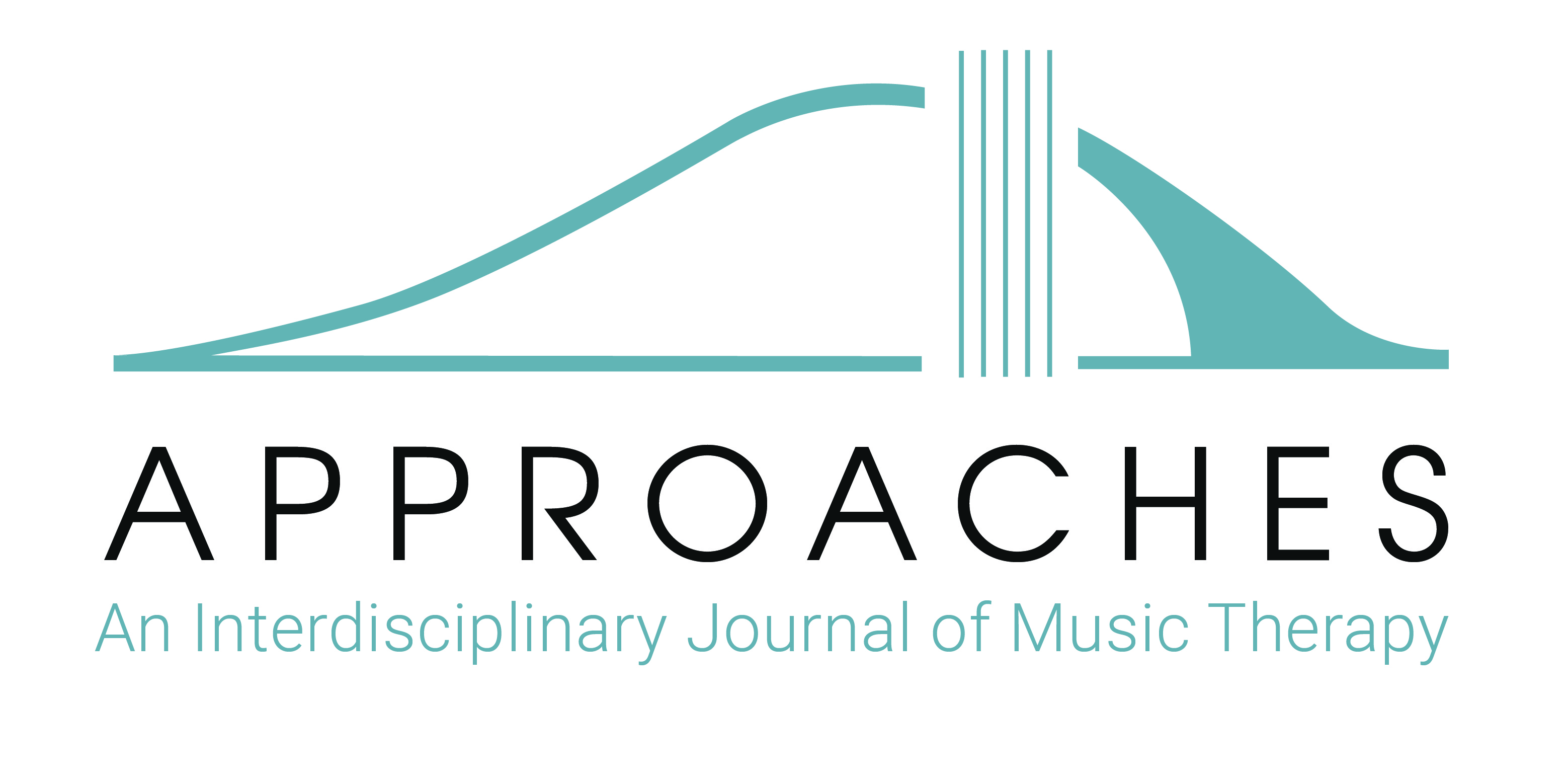Volume 9 (1) 2017 – Editorial (published on 30 September 2017)
Fostering interdisciplinary and multicultural dialogues
Giorgos Tsiris1,2 & Daphne Rickson3
1Nordoff Robbins Scotland, UK; 2Queen Margaret University, UK; 3Victoria University of Wellington, New Zealand
Welcome to the first 2017 edition of Approaches! Last year was dedicated to two special issues: Music, Drama, Dance Movement and Art Therapy: Interdisciplinary Dialogues (Karkou 2016) and Dalcroze Eurhythmics in Music Therapy and Special Music Education (Habron 2016). The interdisciplinary focus of these two special issues highlights the vision of Approaches: to provide diverse perspectives on music therapy practice, profession and discipline by fostering polyphonic dialogues and by linking local and global aspects of music, health and wellbeing. We aim to work with scholars, researchers and practitioners from different fields related to music therapy while we try to create the conditions for healthy and academically robust debates. An open, yet critical, stance towards diverse, even conflicting, views, as well as a huge amount of learning and re-learning (Tsiris et al. 2016), is needed for the accomplishment of this vision.
We would like to take this opportunity to thank Approaches’ editorial team members, the reviewers and, most importantly, the authors for promoting this vision within the journal. Many of our colleagues have served for several years as editorial team members – some since the journal’s establishment in 2008. We recently introduced a five-year pattern which means that some of our current team members will be stepping down at the end of this year. We express our sincere appreciation for their hard work and commitment over the past years. Their role has been vital for the growth of Approaches. Our thanks also go to the past and current sponsors of Approaches.
This edition begins with a special feature entitled Music Therapy: A Profession for the Future. Guest edited by Inge Nygaard Pedersen, this special feature includes a series of papers from a symposium held on 15th April 2016 at Aalborg University, Denmark. Written by 15 authors, these papers explore two key questions: ‘Why music?’ and ‘Why and when is a music therapist needed?’ This feature is organised according to three areas of music therapy work: i) mental health, ii) dementia care and neuro-rehabilitation, and iii) attachment / communication and developmental problems.
In addition to this special feature, this edition brings together a rich collation of articles, interviews, book reviews, conference reports and tributes. The content reflects our commitment not only to interdisciplinary but also to multicultural issues. Bethan Lee Shrubsole reflects on her music therapy practice in northern Uganda, while Elizabeth Coombes and Michal Tombs-Katz reflect on their therapeutic music skill-sharing work in the West Bank. The crucial task of producing practice-based evidence to support the establishment and continuation of music therapy services is addressed in two different but complementary articles by Claire Cartwright (UK) and Okiko Ishihara (Japan) respectively. In the final article, Melissa Mercadal-Brotons, Patricia Sabbatella and María Teresa Del Moral Marcos provide a comprehensive and detailed report on the history, current state, and potential future of music therapy in Spain from the perspectives of training, research and professional practice. They note many exciting accomplishments, yet argue that considerable work still needs to be done to achieve an organised and mature profession. The challenges associated with professionalisation, including the creation of a unified vision of the professional role of music therapists and official recognition of music therapy by national governments, will be familiar concerns within other countries. And indeed, similar considerations and concerns have been outlined in Approaches’ special issue on music therapy in Europe (Ridder & Tsiris 2015). Keeping with the theme of professionalisation, Elizabeth Coombes’ interview with Ioanna Etmektsoglou offers insights into the challenges and opportunities of a new music therapy training programme drawing on Coombes’ experience at the MA Music Therapy programme at the University of South Wales, UK.
In this edition you will also find a number of book reviews, conference reports and tributes. The latter are dedicated to two individuals who passed away in 2015, in memory of their contribution to the field. The first of the tributes is to Oliver Sacks and his tremendous impact on our contemporary thinking about music and wellbeing. The second tribute is to Andrew O’Hanrahan, a UK-based music therapist whose work touched the lives of many.
References
Habron, J. (Ed.). (2016). Dalcroze Eurhythmics in music therapy and special music education. Approaches: An Interdisciplinary Journal of Music Therapy, Special Issue 8(2). Retrieved from https://approaches.gr/special-issue-8-2-2016/
Karkou, V. (Ed.). (2016). Music, drama, dance movement and art therapy: Interdisciplinary dialogues. Approaches: An Interdisciplinary Journal of Music Therapy, Special Issue 8(1). Retrieved from https://approaches.gr/special-issue-8-1-2016/
Ridder, H. M. O., & Tsiris, G. (Eds.). (2015). Music therapy in Europe: Paths of professional development. Approaches: Music Therapy & Special Music Education, Special Issue 7(1). Retrieved from https://approaches.gr/special-issue-7-1-2015/
Tsiris, G., Derrington, P., Sparkes, P., Spiro, N., & Wilson, G. (2016). Interdisciplinary Dialogues in Music, Health and Wellbeing: Difficulties, Challenges and Pitfalls. In M. Belgrave (Ed.), Proceedings of the ISME Commission on Special Music Education and Music Therapy (20-23 July 2016, Edinburgh, Scotland) (pp. 58-70). Edinburgh: ISME.
Suggested citation:
Tsiris, G., & Rickson, D. (2017). Fostering interdisciplinary and multicultural dialogues. Approaches: An Interdisciplinary Journal of Music Therapy, 9(1), 6-7.
